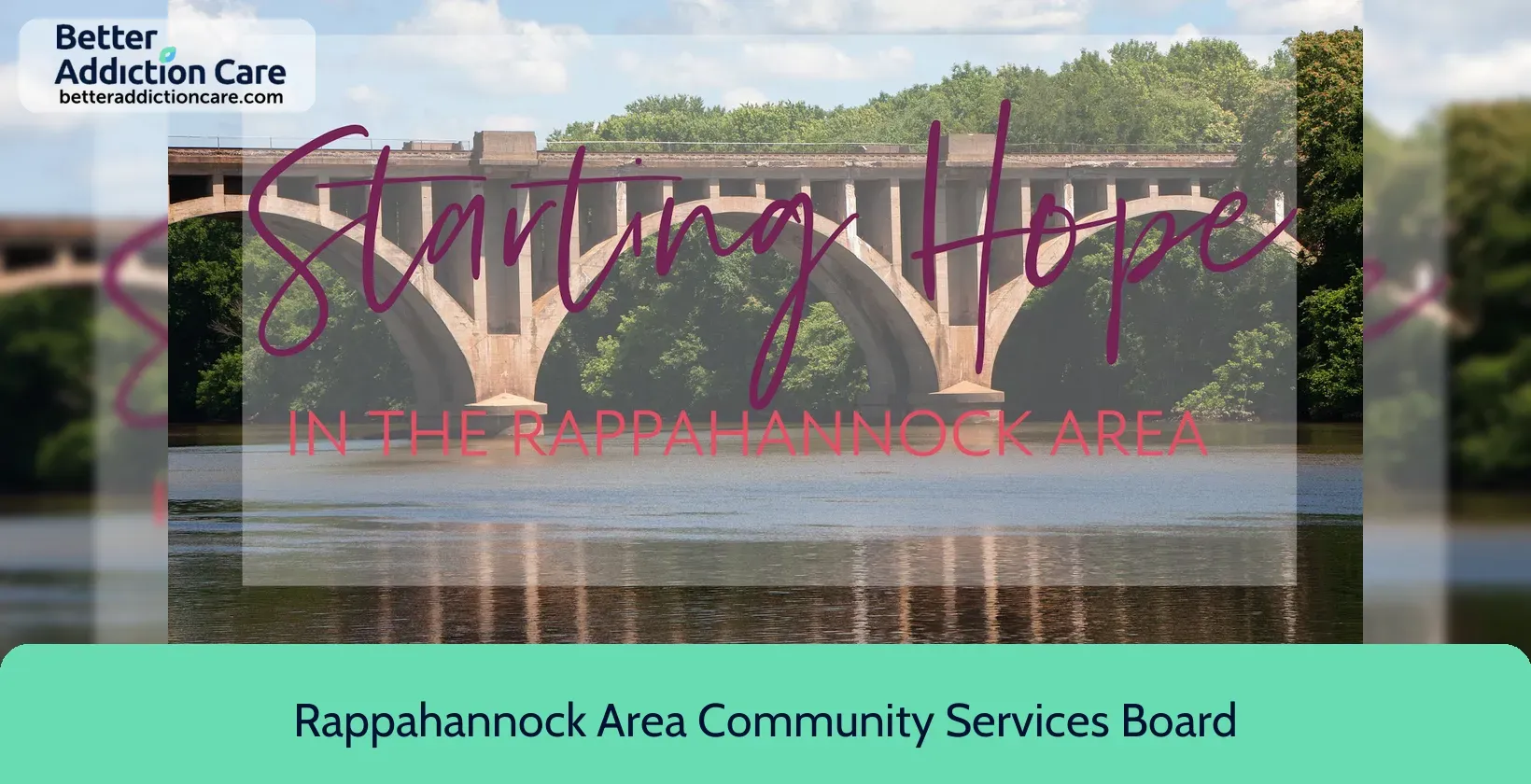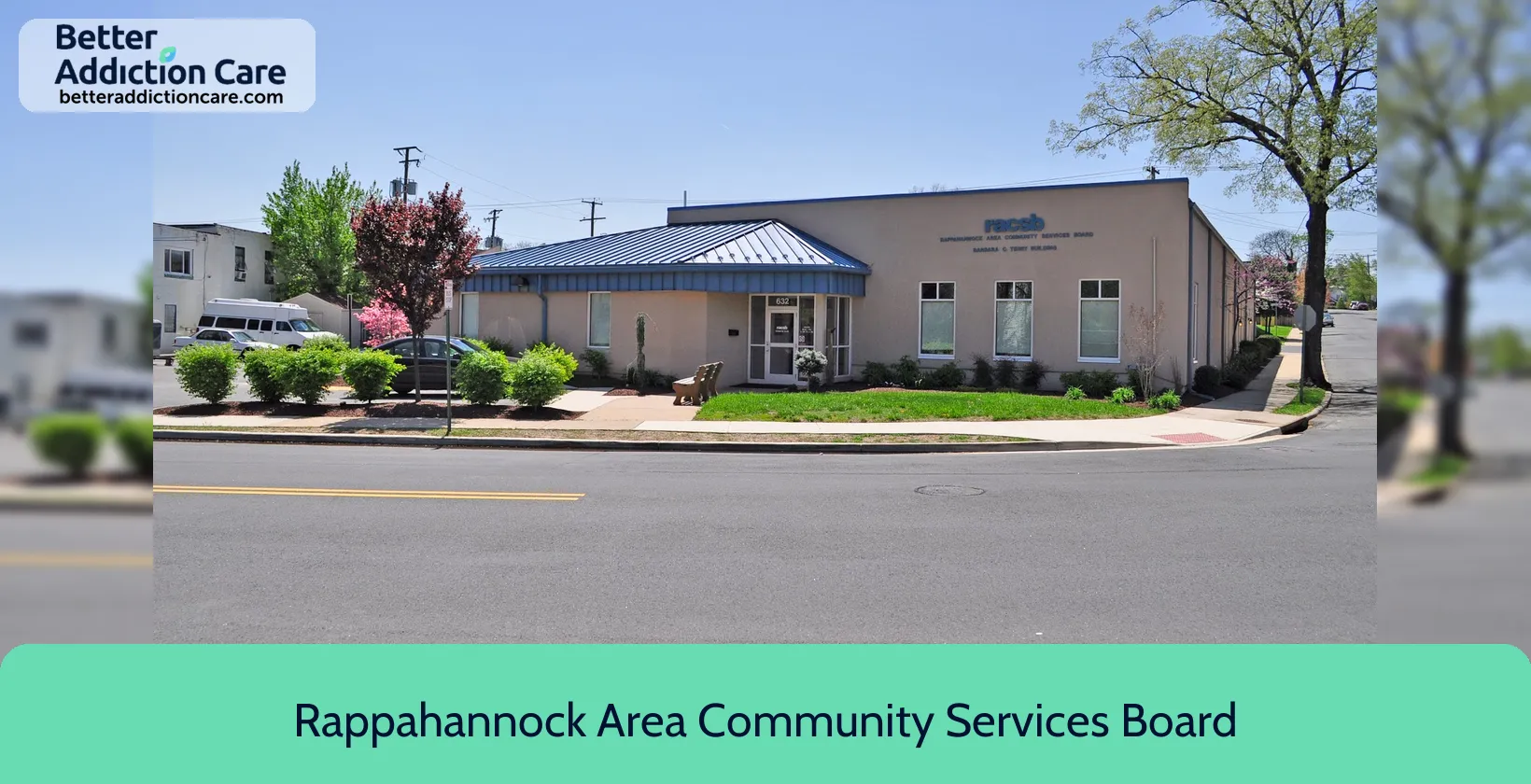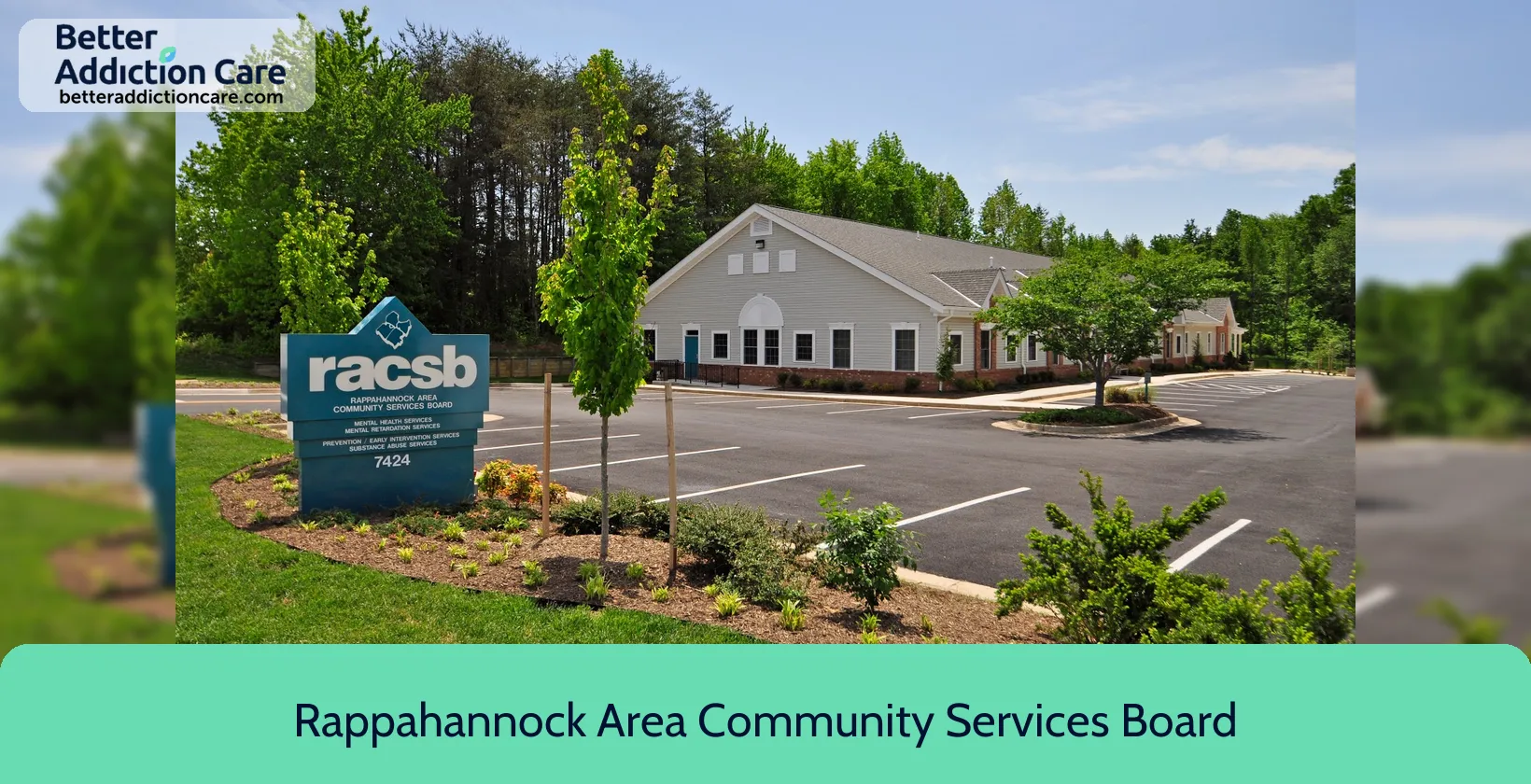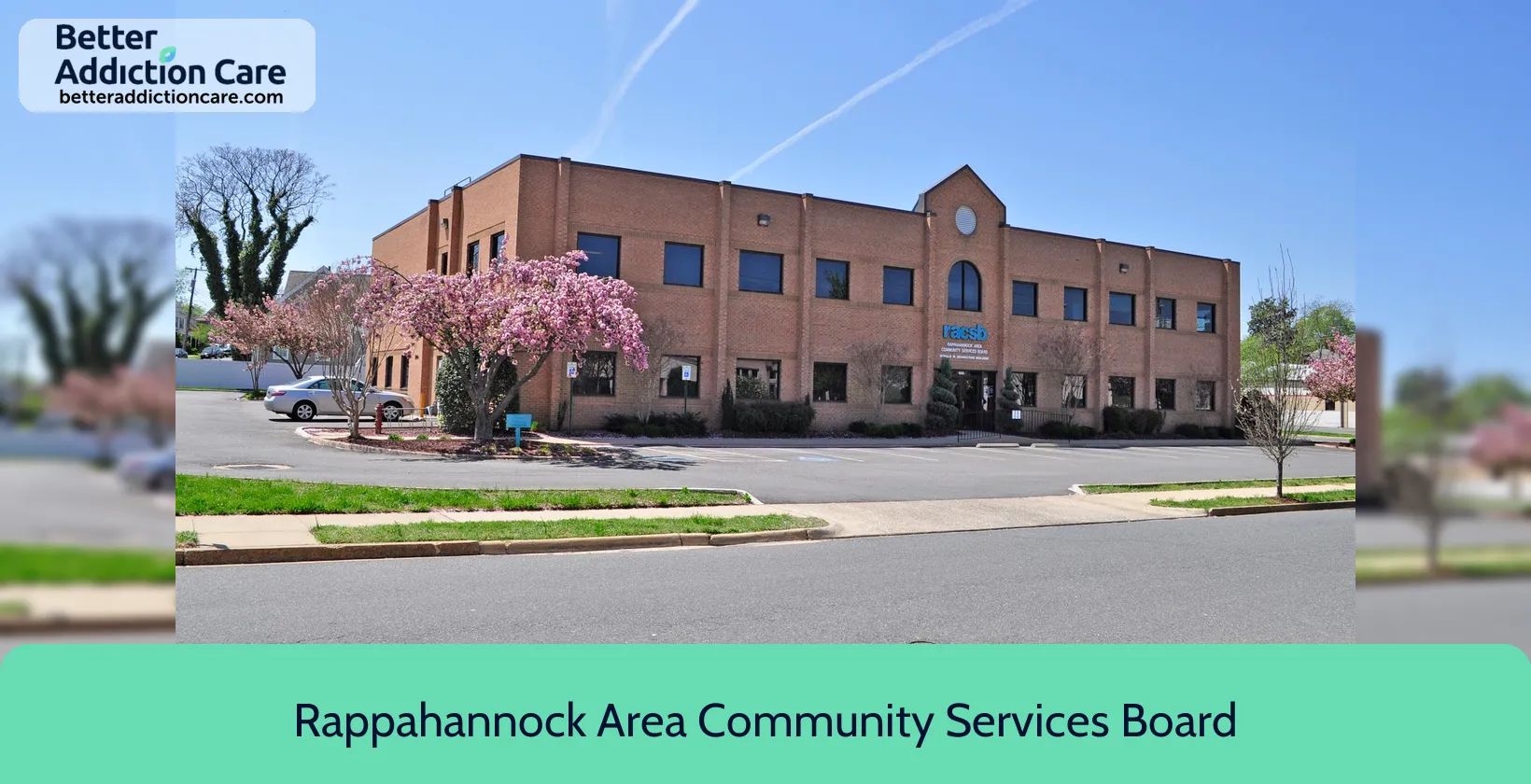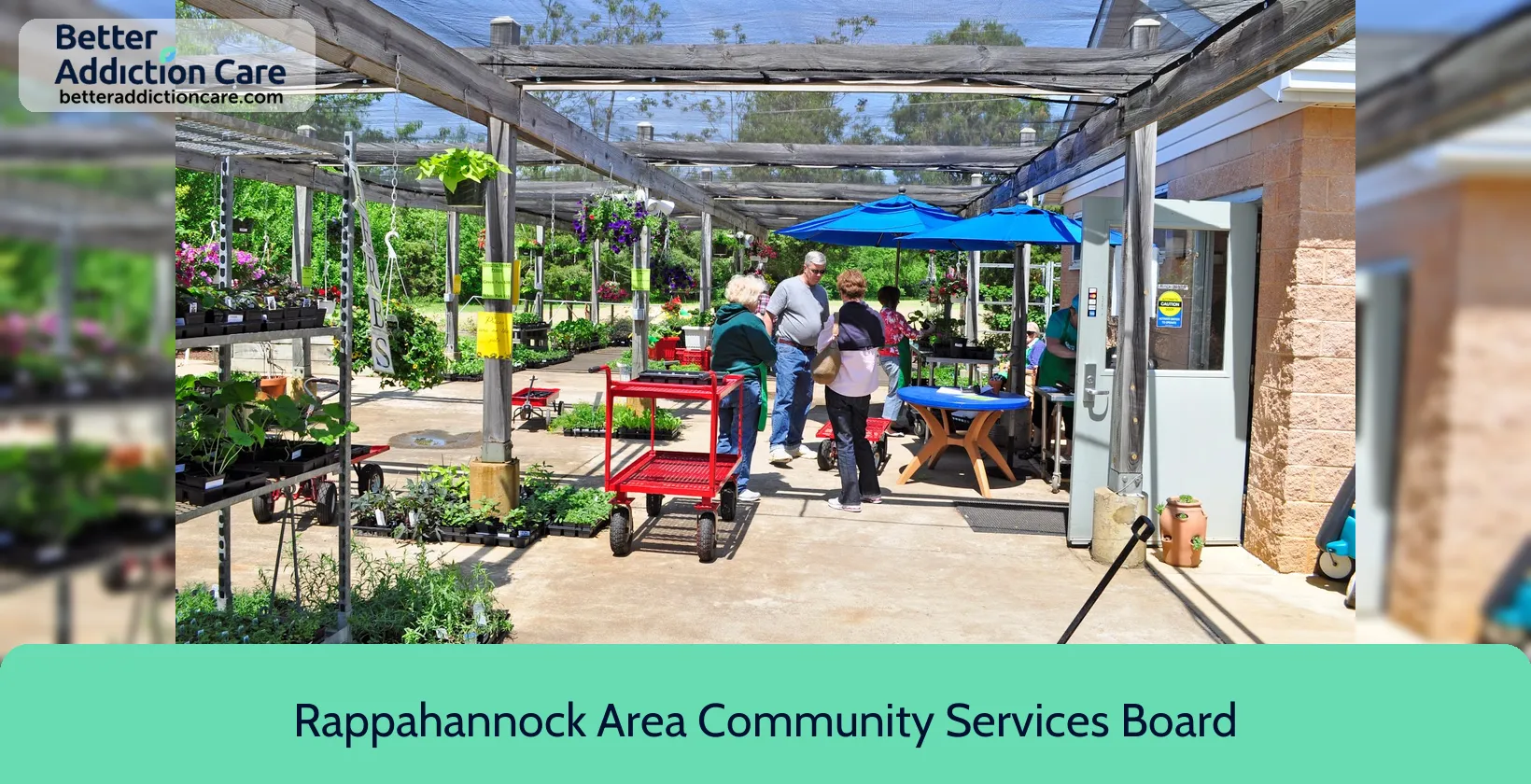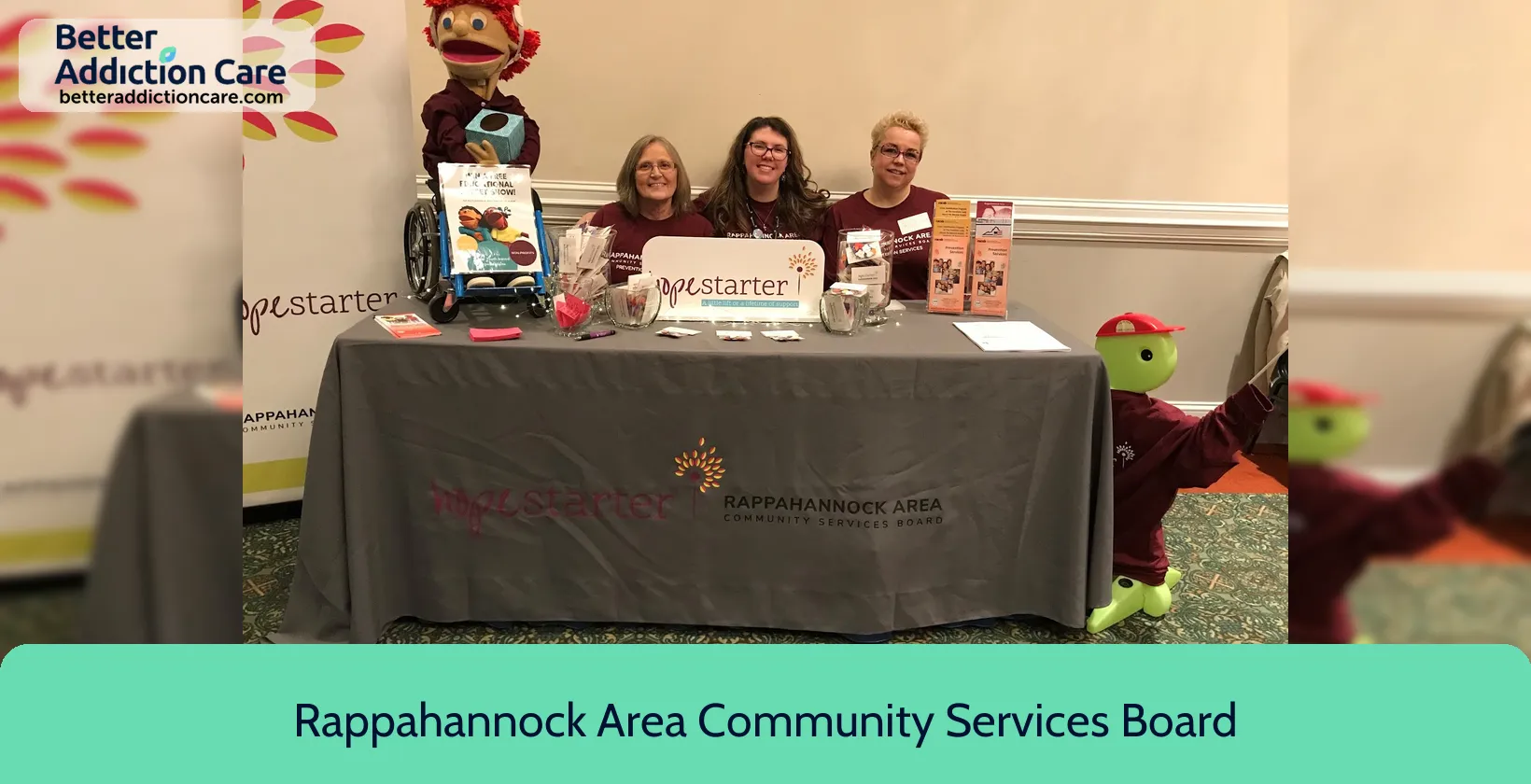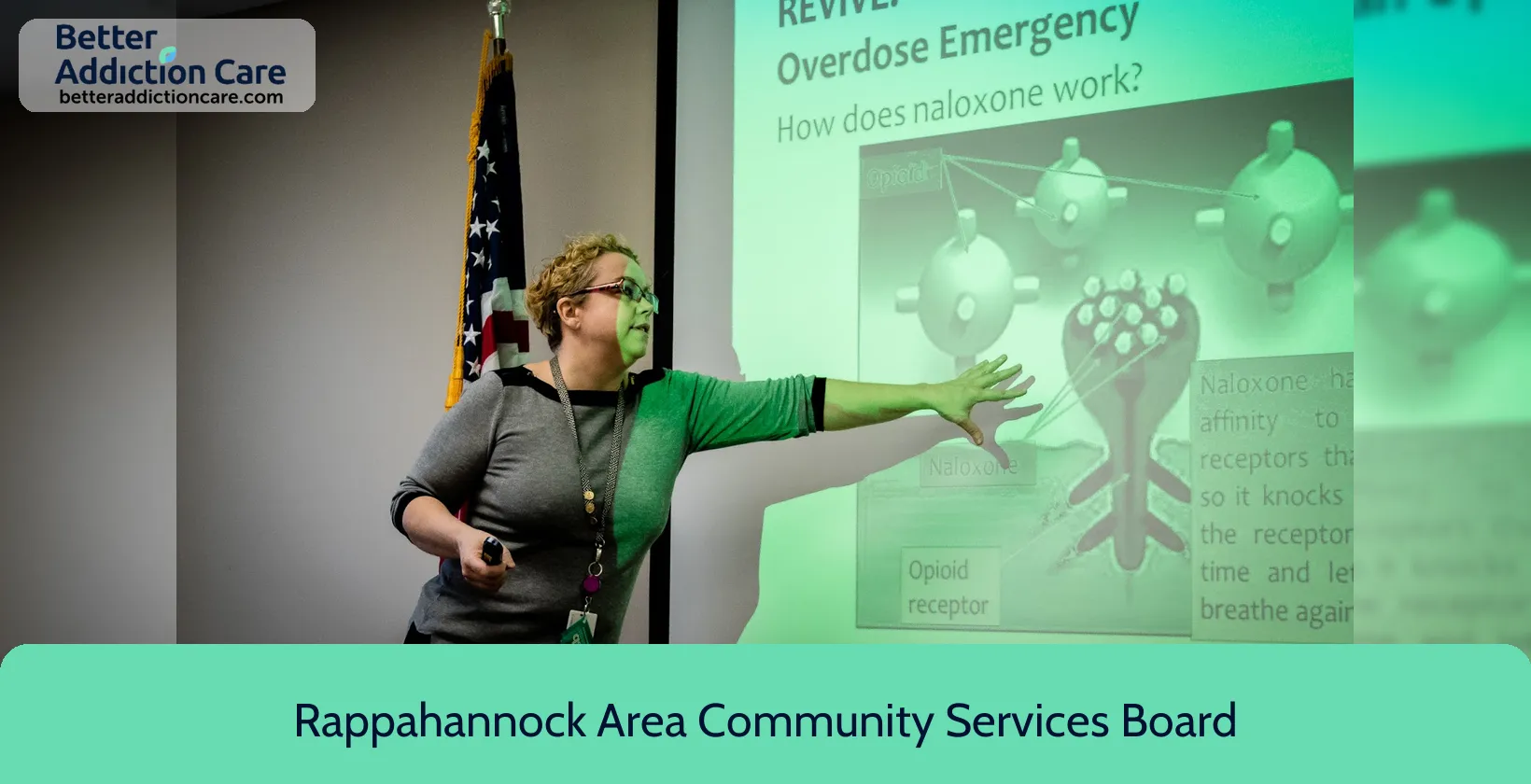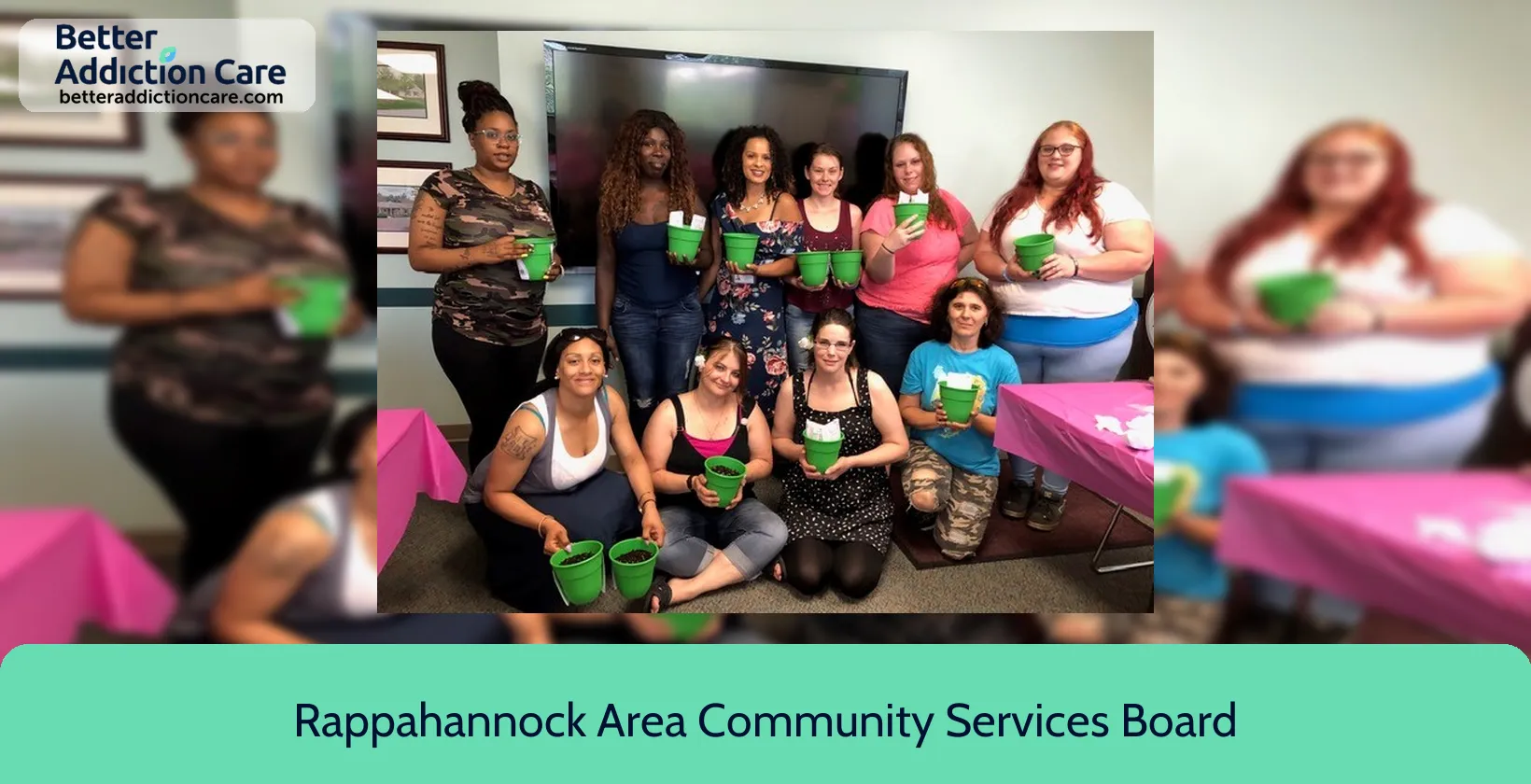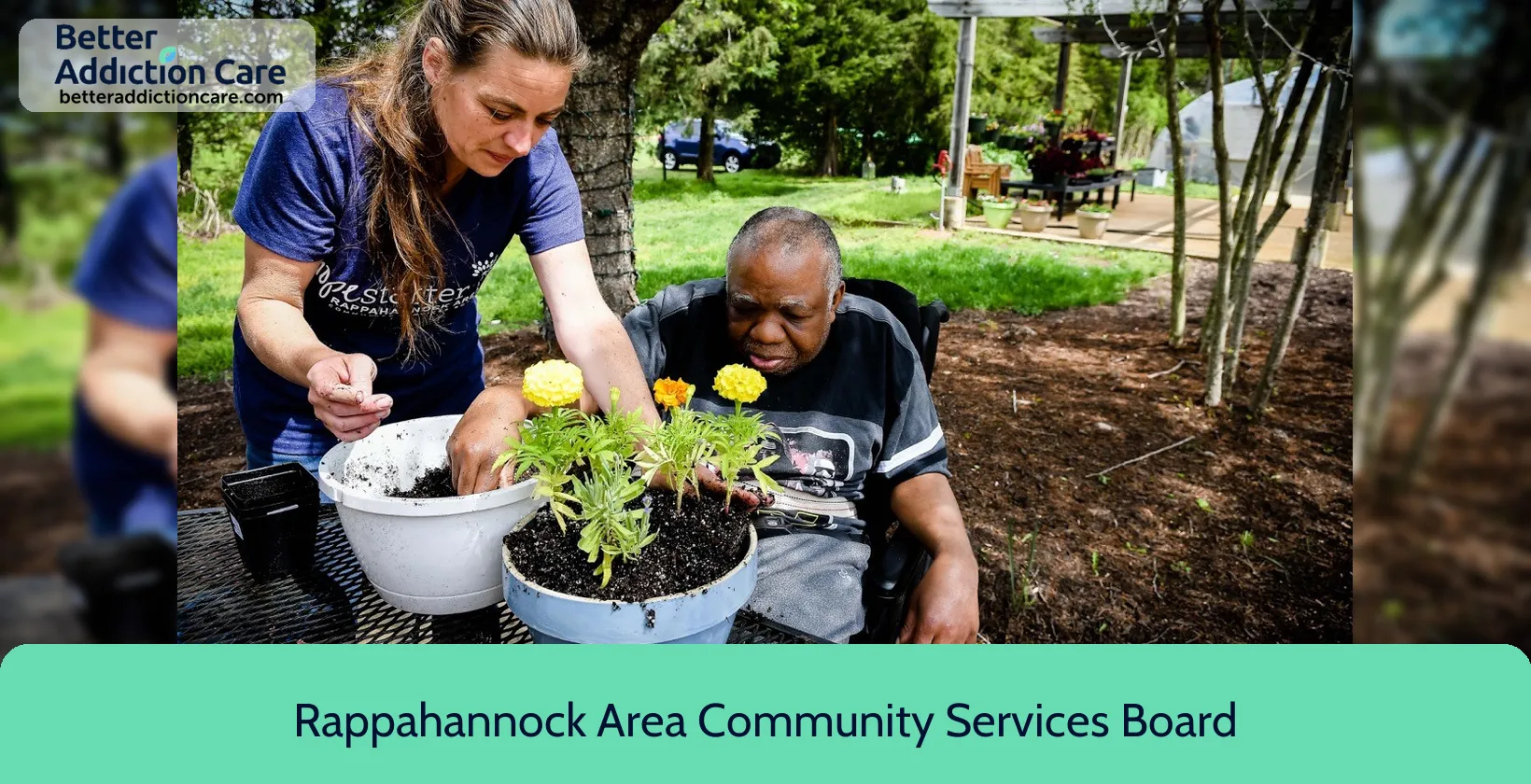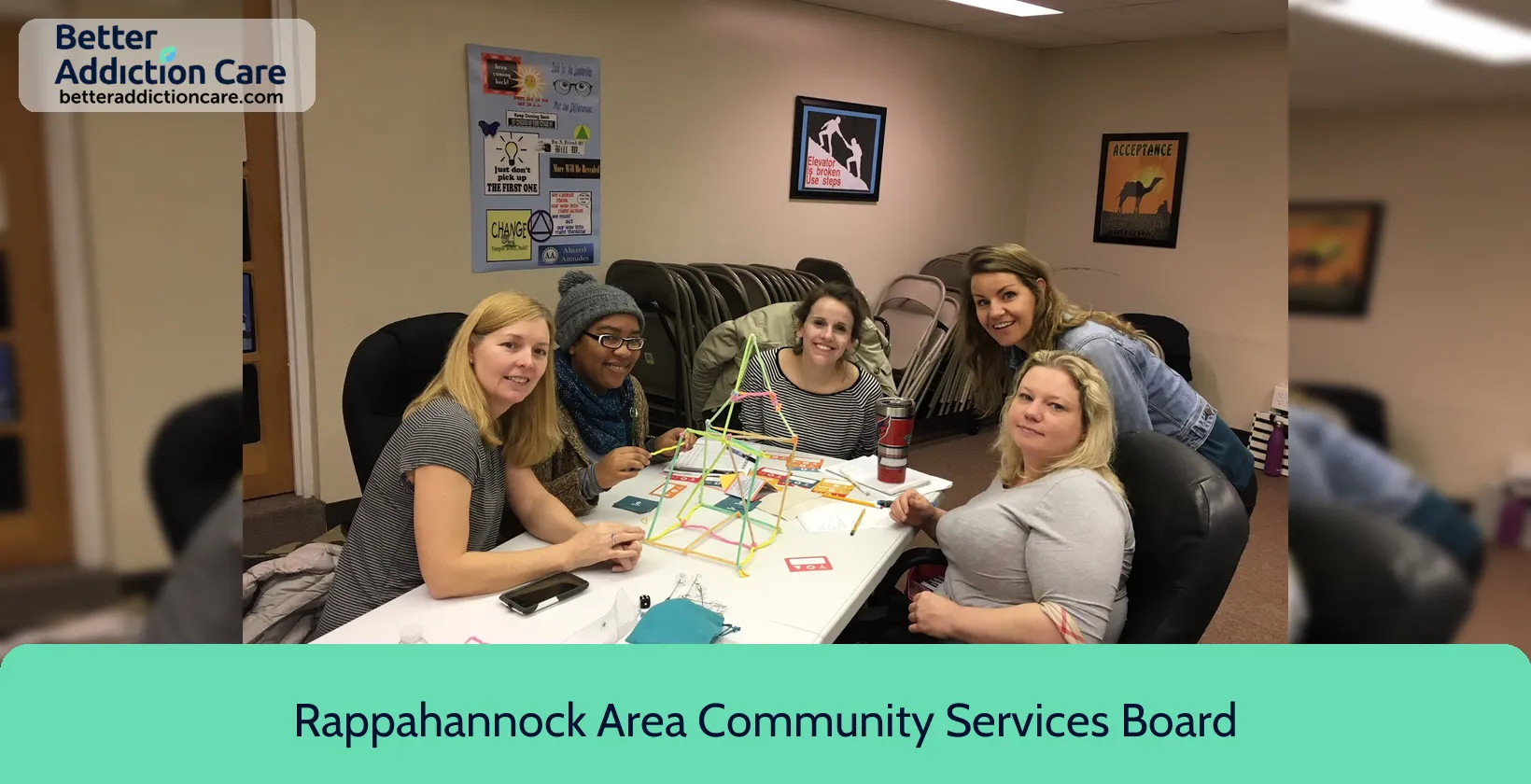Rappahannock Area Community Services Board - Substance Use Disorder Services
Overview
Rappahannock Area Community Services Board - Substance Use Disorder Services is a mental health treatment center for people seeking treatment near Fredericksburg City County. As part of their treatment modalities for recovery, Rappahannock Area Community Services Board - Substance Use Disorder Services provides individual psychotherapy, integrated mental and substance use disorder treatment, and telemedicine/telehealth therapy during treatment. Rappahannock Area Community Services Board - Substance Use Disorder Services is located in Fredericksburg, Virginia, accepting cash or self-payment for treatment.
Rappahannock Area Community Services Board - Substance Use Disorder Services at a Glance
Payment Options
- Cash or self-payment
- Medicaid
- Medicare
- State-financed health insurance plan other than Medicaid
- Private health insurance
Assessments
- Screening for tobacco use
- Comprehensive mental health assessment
- Comprehensive substance use assessment
- Screening for mental disorders
- Screening for substance use
Age Groups
- Children/adolescents
- Young adults
- Adults
- Seniors
Ancillary Services
- Assertive community treatment
- Case management service
- Court-ordered outpatient treatment
- Psychosocial rehabilitation services
- Suicide prevention services
Highlights About Rappahannock Area Community Services Board - Substance Use Disorder Services
7.11/10
With an overall rating of 7.11/10, this facility has following balanced range of services. Alcohol Rehabilitation: 8.00/10, Drug Rehab and Detox: 7.23/10, Insurance and Payments: 6.00/10, Treatment Options: 7.21/10.-
Alcohol Rehabilitation 8.00
-
Drug Rehab and Detox 7.23
-
Treatment Options 7.21
-
Insurance and Payments 6.00
Accreditations
Commission on Accreditation of Rehabilitation Facilities (CARF):

CARF accreditation is a prestigious recognition for rehabilitation and human service organizations. It signifies that an organization meets high-quality standards and is committed to providing top-level care. CARF conducts rigorous evaluations to ensure compliance, enhancing an organization's credibility and reassuring clients and funders of exceptional service quality. This accreditation promotes excellence and continual improvement in the rehabilitation and human services field.
Treatment At Rappahannock Area Community Services Board - Substance Use Disorder Services
Treatment Conditions
- Alcoholism
- Mental health treatment
- Substance use treatment
- Co-occurring Disorders
Care Levels
- Hospital inpatient treatment
- Outpatient
- Outpatient methadone/buprenorphine or naltrexone treatment
- Regular outpatient treatment
- Aftercare
Treatment Modalities
- Individual psychotherapy
- Integrated Mental and Substance Use Disorder treatment
- Telemedicine/telehealth therapy
- Substance use disorder counseling
- Trauma-related counseling
Ancillary Services
Additional Services
- Pharmacotherapies administered during treatment
- Mentoring/peer support
- Breathalyzer or blood alcohol testing
Special Programs
- Veterans
- Criminal justice (other than DUI/DWI)/Forensic clients
- Pregnant/postpartum women
- Clients who have experienced trauma
Contact Information
Read our Most Recent Article About Drug Addiction
DISCLAIMER: The facility name, logo and brand are the property and registered trademarks of Rappahannock Area Community Services Board - Substance Use Disorder Services, and are being used for identification and informational purposes only. Use of these names, logos and brands shall not imply endorsement. BetterAddictionCare.com is not affiliated with or sponsored by Rappahannock Area Community Services Board - Substance Use Disorder Services.
